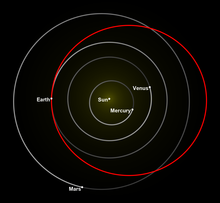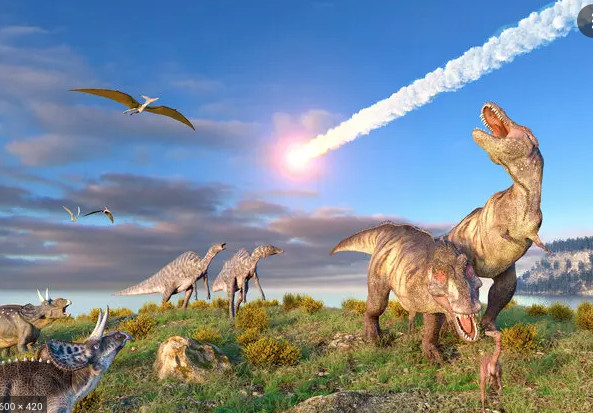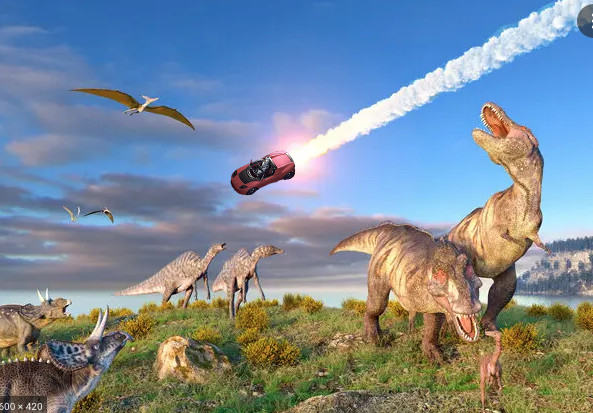Musk isn’t exactly having the best safety record with the Teslas, and check out the roadster’s orbit 

Orbital resonance has kept it far from earth so far but there’s a near certainty close pass at some point.
Musk isn’t exactly having the best safety record with the Teslas, and check out the roadster’s orbit 

Orbital resonance has kept it far from earth so far but there’s a near certainty close pass at some point.
Well, to compare an operational density of terrestial traffic and outer space is quite a red herring.
(it was a joke)
 One never know’s. I am not a fanatic fanboy of Musk (His Twitter tyrade around the kids stuck in the cave showed that he can be disconnected from reality like any other person living on a cloud of billions.), however, it really grinds my gears when some people just hate on one of a few billionaires out there, who actually in combination with getting obscenely rich also seems to do something for others.
One never know’s. I am not a fanatic fanboy of Musk (His Twitter tyrade around the kids stuck in the cave showed that he can be disconnected from reality like any other person living on a cloud of billions.), however, it really grinds my gears when some people just hate on one of a few billionaires out there, who actually in combination with getting obscenely rich also seems to do something for others.
An asteroid for the dinosaurs and a Tesla asteroid for us. What a way to go. Hoist with his own petard.



That’s it - the Tesla, obviously with a flux capacitor built in, traveled back in time and caused the extinction event…
That can’t be good for sales… 
Every dinosaur before his death: “Fuck you electric cars. I will become oil.”
That has just made my morning 

Perfect 
Yes, they find those criminals using DNA and the family trees people post, and then narrow it down to likely candidates by age, location, etc. It has been a topic of disagreement for many people who use DNA for genealogy; some have no problem letting Law Enforcement (LE) having access, others are more leery of it. But the only sites of that type who have given LE access to their databases have been GEDmatch. com and FamilyTreeDNA. But Ancestry, 23andMe, and MyHeritage do not allow it. There are settings at GEDmatch and FamilyTreeDNA to opt out, but it is tricky for those who want to opt out.
It is a reminder to users to read all Terms & Conditions and Privacy policies, before using any service. Make sure you understand the terms, and know how to use the settings, before you agree.
BTW - you can access many, if not most, of the microfilms using the FamilySearch.org website. Access to some films is restricted, though, and only available at a Family History Center (which of course are still closed for the pandemic).
I think it’s pretty clear it needs to be regulated. So far the police have only used it for capital crimes, but who knows how ubiquitous (or automated) it might be made in the future. I’m pretty uncomfortable with the idea that DNA/geneology data I submit now might be used to track down relatives, however distant, in the future for things that I might not even agree are crimes.
As it currently stands, submitting that data now depends on the ideas that all future laws will be just and that this will only be used for major crimes, and frankly, I’m not willing to take that bet.
@Celticstar - Back in the 1970s I bought a Nikon F camera, and was taking classes in which I developed my own film and made prints. I still have that camera, and a few lenses and accessories for it. I wish the D750 had a focusing screen like the F did; my old eyes could use it. Funny story from back then: one of my molars broke, and I had told the dentist I couldn’t afford a crown at the time. He gave me an option of putting in posts and building up the tooth as a temporary fix. But really it was because I wanted an SLR camera so badly at the time, and wanted to spend the $$ on it instead. Camera GAS!
Re: Milky Way photos: we did take a number of shots, but I don’t think all were from exactly the same position (didn’t move the tripod, but probably turned the camera horizontally or vertically for a few other photos. I’ll have to check them. I finally located them on an SD memory card, not with others taken on the trip, which I’d transferred to my computer. Time to back up all the photos on the SD card!
Thanks for the tip about YouTube tutorials. I had used some tutorials from several photography sites before we went to Hawaii, and for the eclipse. But I’ll definitely check out some videos.
I have Photoshop and use it, but it is an older version (CS5.1, if you can believe it!). I have stopped upgrading the OS on my computer, because I’m afraid PS won’t work anymore if I do. I really don’t want to have to update to a subscription version for Photoshop, but eventually it will come to doing that or using GIMP.
Absolutely. Every time someone uses the ‘well if you didn’t do anything wrong, you’ve got nothing to worry about’ argument.
I point them of the direction of the MK Ultra project. Where the American government covertly gave high doses of psychoactive drugs to their own and Canadian citizens without their knowledge.
If you’ve read any Phillip K Dick you know where DNA is going !
![]()
![]()
![]()
![]()
@Never2Late I recently listened to a BBC podcast on this very subject. You may find it interesting. All about DNA, forensic genealogy etc. It’s well produced.
There is no depth any even reasonably democratic government won’t stoop to, if it finds itself short of money.
Also, as soon as you let the police run ahead of the legislation, you have a problem. The RCMP and gun laws in Canada come to mind. Likewise the access to DNA in crime fighting as well. The whole argument of “if you do nothing wrong…” is a fallacy (and maybe even a phallusy!) because the no wrong you do now, may in the future be a high crime at any given point and for any arbitrary reason (usually public safety). If you don’t think so, just try to tell an off-colour joke in public.
I’m a firm believer in limiting gov’t’s access to as much as possible.
@Barney
Thanks! That podcast sounds interesting, and I’ll try to listen to it.
I find it interesting, though, that the article about it says:
Turi meets one of the first private DNA detectives from the US, Dr Colleen Fitzpatrick, who coined the phrase “forensic genealogy”.
Dr. Fitzpatrick did not coin that phrase, although she may have popularized its incorrect usage; according to the International Society for Genetic Genealogy (ISOGG), Forensic Genealogy is
a term used particularly in the US to describe genealogical research, analysis and reporting in cases with legal implications, often involving living individuals . . .
. . . Forensic genealogists may be called upon to appear in court to provide expert testimony, and typically furnish affidavits and research reports to their clients that adhere to the Genealogical Proof Standard established by the Board for Certification of Genealogists.
What the podcast is discussing is more properly called “Investigative genetic genealogy”, aka IGG. (more info here) The term “forensic genealogy” has been in use since the 1950s. Cases which use Forensic Genealogists (per ISOGG) include:
“heir hunting, establishing citizenship, etc. IGG is a subset of forensic genealogy and not a synonym.”
(more uses for Forensic Genealogy are described at the first link above)
But, who would have thought that anything associated with dusty ol’ genealogy would be so controversial. I think it’s best if we return to discussing our hobbies - sorry if my input has sidetracked this topic. ![]()
Not at all. I’m here to improve my Bass playing, but I think it’s OK to be curious. It frustrated me as a child that my father would talk to people and ask them questions about subjects that didn’t seem relevant. Only 40 years later do I realize it’s all relevant. Just to a greater or lesser degree.